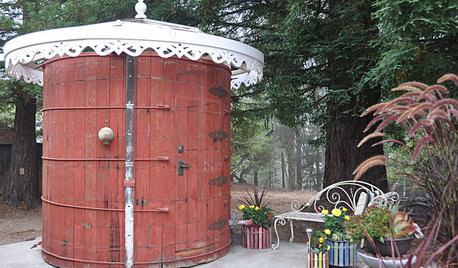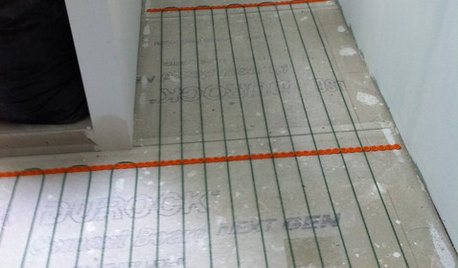Remove underground tank or leave it?
pjcampo
15 years ago
Related Stories

MOST POPULARThanksgiving Tales: When the Turkey Tanks
Houzz readers prove adept at snatching victory from the jaws of entertaining defeat
Full Story
OUTBUILDINGSSee an Outdoor Bathroom Made From a Water Tank
This repurposed fixture in a California backyard is now the owners' favorite bathing spot
Full Story
GREEN BUILDINGHow to Harvest Rainwater for Your Garden
Conserve a vital resource and save money by collecting stormwater for irrigation in a barrel or tank
Full Story
LANDSCAPE DESIGNHow to Move Water Through Your Landscape
Swales, underground pipes or a mix of both: There’s more than one way to distribute water in the garden
Full Story
ARCHITECTURE4 Zurich Projects Build on High-Rise Livability
Generous landscaping, underground parking and terraces make these apartment complexes models of thoughtful housing
Full Story
GARDENING GUIDESSoutheast Gardener's November Checklist
You're probably on top of planting bulbs, but don't forget to keep an eye on frost and drain your mower's gas tank
Full Story
BATHROOM DESIGNWarm Up Your Bathroom With Heated Floors
If your bathroom floor is leaving you cold, try warming up to an electric heating system
Full Story
HEALTHY HOMEWhat to Know About Controlling Dust During Remodeling
You can't eliminate dust during construction, but there are ways to contain and remove as much of it as possible
Full Story
KITCHEN STORAGE13 Popular Kitchen Storage Ideas and What They Cost
Corner drawers, appliance garages, platter storage and in-counter knife slots are a few details you may not want to leave out
Full Story
GARDENING GUIDESGreat Design Plant: Dasylirion Wheeleri
The gray-toothed leaves of common sotol add great spiky texture to drought-tolerant landscapes
Full StoryMore Discussions








barbag
mlo1
Related Professionals
Fayetteville Architects & Building Designers · Lexington Architects & Building Designers · Martinsville Architects & Building Designers · Middle River Architects & Building Designers · Burlington General Contractors · Browns Mills General Contractors · Longview General Contractors · Reisterstown General Contractors · Tabernacle General Contractors · Williston General Contractors · Ken Caryl Home Stagers · Verona Home Stagers · Westminster Home Stagers · Boise Interior Designers & Decorators · Van Wert Interior Designers & Decoratorsxamsx
setancre
logic
triciae
pjcampoOriginal Author
heimert
kudzu9
ron6519